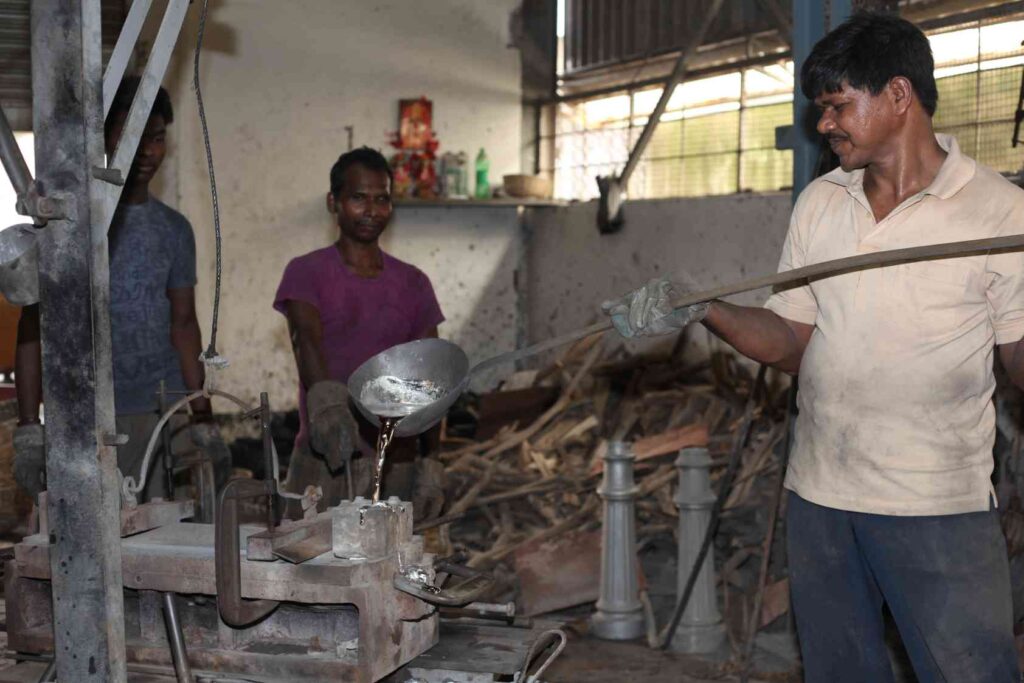
Manufacturing continuously undergoes growth and fast changes, and the demand for lightweight materials has become crucial for every industrial sector, be it automotive, aerospace, consumer electronics, or construction. Lighter components imply better fuel economy and fewer emissions. Also, it implies that structures do not have to bear heavy road loads and therefore perform better in handling. Cast aluminum manufacturers, therefore, are the most forward-looking in using the latest techniques and materials to meet these stringent lightweighting requirements in 2025.
The Rising Need for Lightweight Components
With stricter environmental regulations and a thrust toward sustainable design, industries are seeking alternatives to heavier, conventional materials. Aluminum has gained favor because of its excellent strength-to-weight ratio, corrosion resistance, and versatility. The ability to cast aluminum into complex shapes is very appealing for intricate parts where weight reduction is of paramount importance. Manufacturers must engineer aluminum’s properties for specific applications to maximize its benefits. Modern cast aluminum manufacturing techniques enable this customization while maintaining cost-effectiveness.
Innovations in Cast Aluminum Manufacturing
Advanced Alloy Development: Present-day manufacturers of cast aluminum products are making high-performance alloys with increased strength and ductility. This allows for the manufacture of lighter components with no loss in durability. By adding elements such as silicon, magnesium, and zinc, manufacturers are tailoring alloys to be application-specific.
Precision Casting Methods: Any precision casting technique, whether high-pressure die casting, lost foam casting, or sand casting with advanced molds, would contribute toward producing lighter and stronger parts. These methods maximize material use, permit thin walls, and offer complex geometries for maximum weight savings.
Lightweight Design: Recent design strategies used by cast aluminum product fabricators involve CAD and FEA in optimizing component designs. The analyses allow pinpointing areas where material reduction or relocation can be effected without hampering strength-level considerations. Thus giving way to new solutions for lightweight structuring.
Additive Manufacturing Integration: Some manufacturers are leveraging additive manufacturing with traditional casting to develop casting hybrid components that permit being lighter and more functional. This interplay enables complex internal geometries and lattice structures for weight reduction.
Sustainable and Cost-Effective Production
Meeting lightweighting demands also involves balancing performance with cost efficiency. In casting aluminum, a number of players also pursue energy-efficient melting and casting procedures. They aim to generate less waste from inefficient mold designs and seek more profitable ways of recycling scrap materials. Reducing production costs and meeting their sustainability agendas will erode existing roadblocks in promoting light aluminum components across the industries.
Customization and Flexibility
As casting offers much flexibility to manufacturers, they can produce lightweight parts for customized specifications. It could be a complicated aerospace part or a lightweight automotive chassis. The cast aluminum product manufacturer can work around alloys, wall thicknesses, and geometries to accomplish maximum weight reduction without compromising any safety stipulation or performance.
How do cast aluminum manufacturers achieve significant weight reduction without sacrificing strength?
They develop newer aluminum alloys with better strength-to-weight ratios and make use of precision casting techniques that would enable them to design thinner-walled, optimized components while still doing their job in terms of durability.
Role of A Cast Aluminum Product Manufacturer
- Innovation and R&D: The leading manufacturers of cast aluminum products keep on researching in the fields of manufacturing new alloys and selecting new casting methods that promote lightweighting.
- Quality Assurance: They also develop protocols to test and ensure the quality of lightweight components so that they conform to industry standards and meet all durability criteria.
- Process Optimization: These manufacturers used to work to improve the casting techniques further and to automate the casting processes with a view to improving the efficiency, consistency, and scalability of lightweight aluminum parts.
